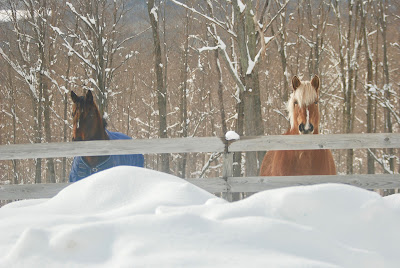It's sad to say it because so many would like to believe it to be true, but Western dressage simply does not equate to regular dressage.
The idea that you can take an regular dressage trainer's experience especially a classical trainer of today with an actual background of working with masters of the sport, that is well-versed in the art of the discipline, and anticipate that they can simply translate what they know to help the Western Dressage rider may work O.K.'ish' at the very basic levels. But once you get past the simplest of work, the most basic of basics, it simply is not the same method.
Yes there is training for similar principles of rhythm, bending through the entire horse on a circle, same size arenas and letters etc. But there are many differences too, not least the tack and equipment allowed and how it is utilized Here is a super article that explains the differences between English, Western and Cowboy Dressage.
The idea of marrying the two is not new and many riders have given demonstrations of Pas De Deux of English riding and Western riding (the latter sometimes being reiners versus Western Dressage which is of course different). Since the 1980's two time Olympian Lendon Gray was seen showcasing her dressage art alongside various Western cowboy riders, and such as Rocky Dare. The Cowboy Dressage rose to fame with Eitan Beth Helachmy in 1993. Other notable dressage riders such as Olympic Gold Medalist Anky Van Grusnven have switched to riding reining horses, though not sure if the idea of Western Dressage occurred in her world.
The Western Dressage arena is often opted into as a show place for the dressage rider who has determined for one reason or another that they would prefer to compete in this somewhat 'smaller' and less competitive pond. Reasons such as the horse's ability or temperament ( bearing in mind Western Dressage judges score based on very different values including the breed and innate movement of the horse), the rider's ability or temperament, or simply to try something different.
In Portugal and Spain the Gaucho - their version of a cowboy, has come to more prominence in equestrian competition in the U.S.A. but this is centered in recent decades, quite literally, around the bullfighting heritage more than herding cattle.
The seasoned Grand Prix dressage competitor/coach or clinician can likely turn their hand to offering some helpful instruction to the aspiring Western Dressage rider, but of course, having spent much of their careers specializing to such a high degree in the English version, they may be recalcitrant to play.
As a competitor it is possible to switch back and forth showing horses between both disciplines. But most proven advanced level clinicians in English dressage that spend many hours on the ground or in the saddle training horses and coaching students would likely argue that the ability to focus and switch out body movements, the way aids are applied (especially those from the seat), that have become innate through much hard work and diligence would become undone and cause negative results in terms of success on the winner's podium.
Specialization is likely to aid the aspiring student and the aspiring trainer. Of course you only want to train with people who know more than you do and equally importantly, don't just know how to ride it but also can convey their knowledge in an accessible manner in their teaching methods.
It is important to show humility in life and certainly in all things equestrian. We all have riding disciplines we excel at and/or prefer, but that is no reason to look down and frown on others or to set oneself on a pedestal.
I firmly believe every horse person has something they can teach me. My mind is always open to new things and new methods that will benefit the horse and improve the communication and understanding between me and my equine partner.
But it is also important to accept with equal humility the fact that you cannot do everything well. Focus is of critical importance when it comes to attaining advanced levels in any athletic endeavor. Accept that an English dressage trainer may not wish to work with gaited horses even though there is a USDF breed competition for dressage now, or an English dressage trainer may not wish to work with a Western Dressage rider or horse or train a horse that they consider is too small for them to ride due to weight percentages and fit. This is not a rejection, more a question of where the trainer feels they can best help.
Whether you choose to compete or whether you ride for your own satisfaction outside of the limelight, neither option is better or more valid than the other. Whether you ride in an English saddle or a Western saddle, a bit with two reins in hand or a bit with one rein in hand, or are simply constantly working with horses on the ground furthering knowledge on communicating with the equine mind from that perspective, all are to be equally respected.
But be cognizant that your choice of trainer and 'help' in reaching your goals needs to be a person driven to your goals. For many of us clinicians, the passion for dressage has been a lifetime of experiences all navigated with good heart, sharing our knowledge as we go. It is tiring, hard not to burn out over time but on good days, rewarding too.
Earnest trainers will be honest and forthright about their talents. Earnest students will be honest and forthright about their talents too.
Big pond or small pond, English or Western, as long as the horse's health and interest is always put first it will all work out at the end of the day.











